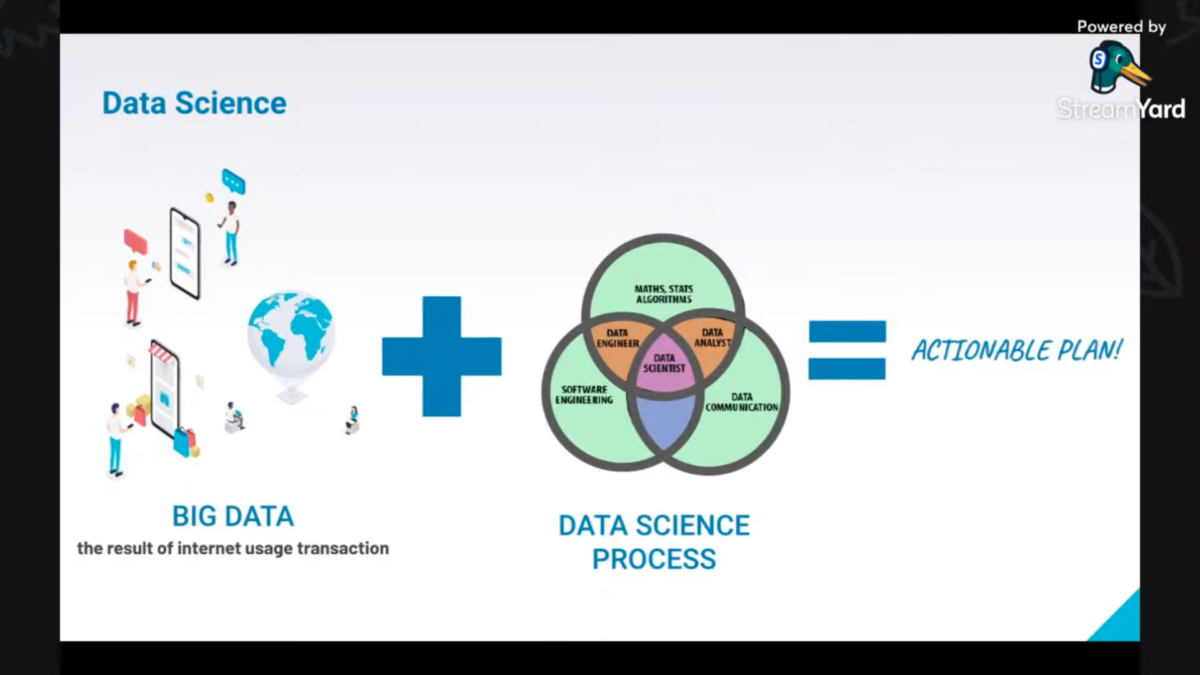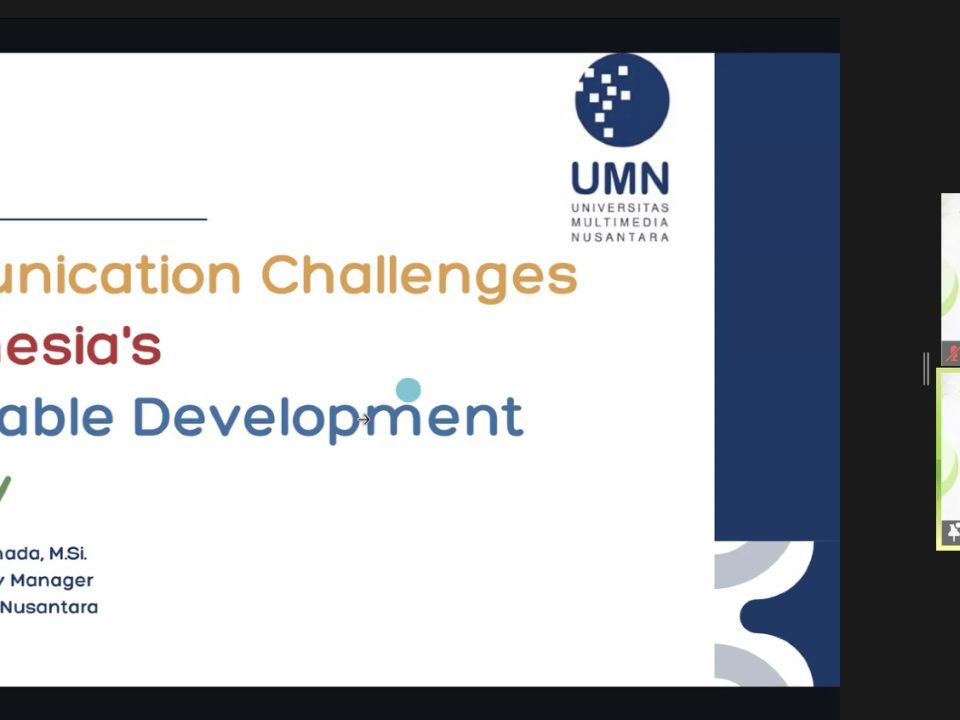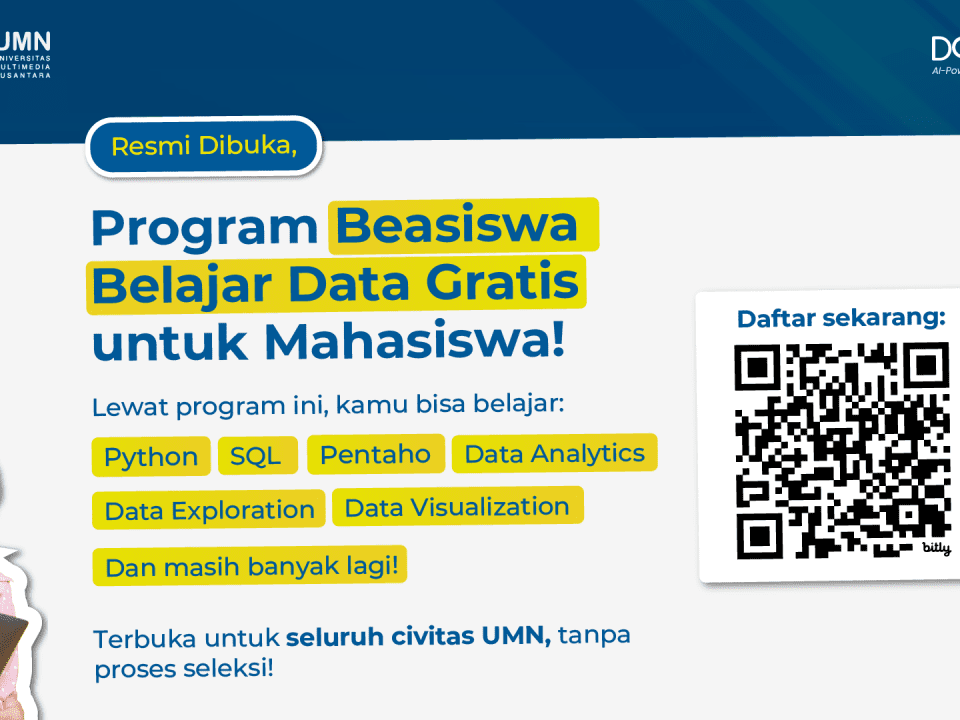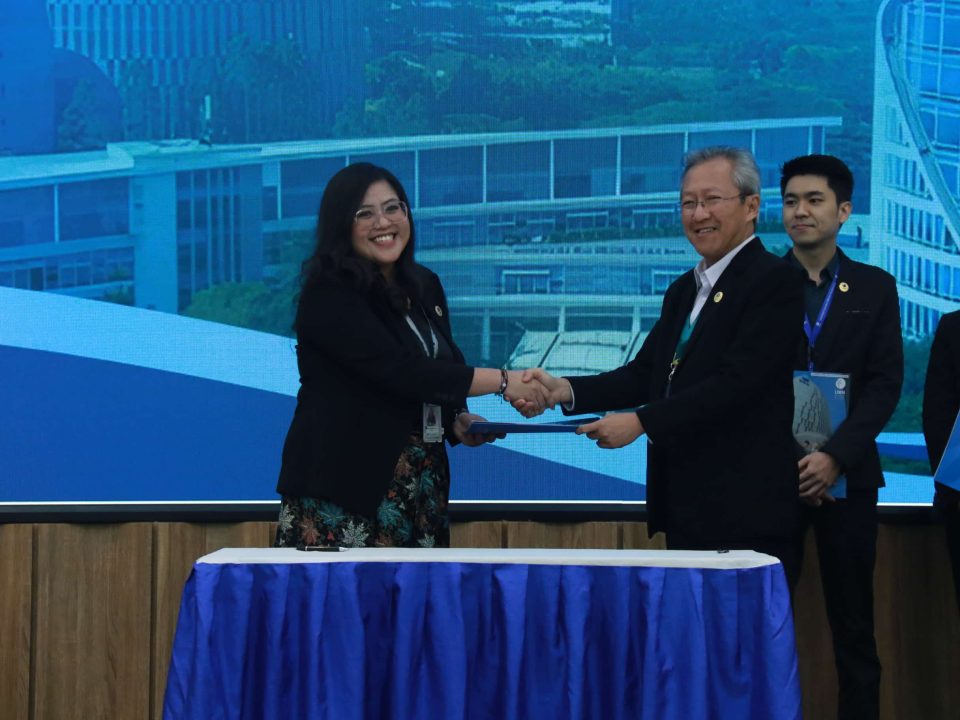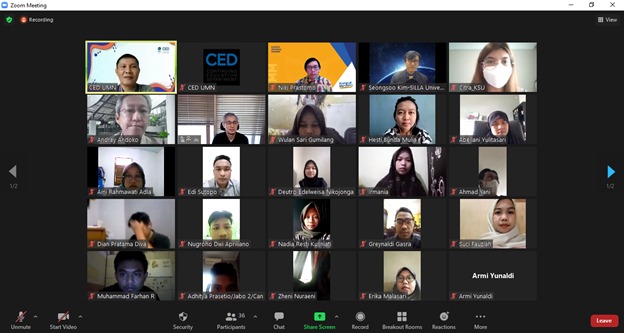
UMN with Silla University and KOICA Opens the Second Batch of KSU4IRTC Free-Training Program
February 21, 2022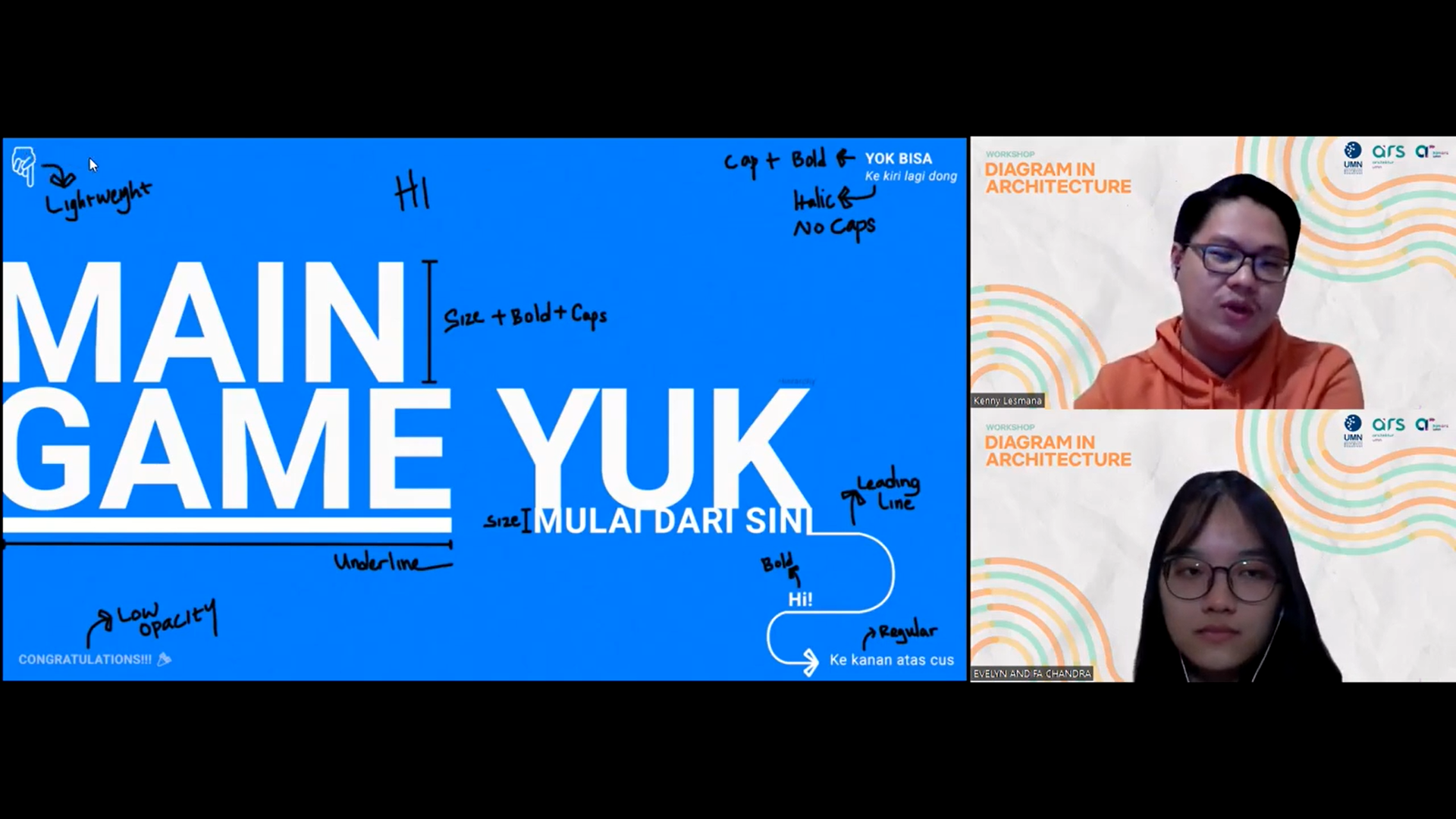
UMN Architecture Students Share Tips On Visualizing Diagrams
February 22, 2022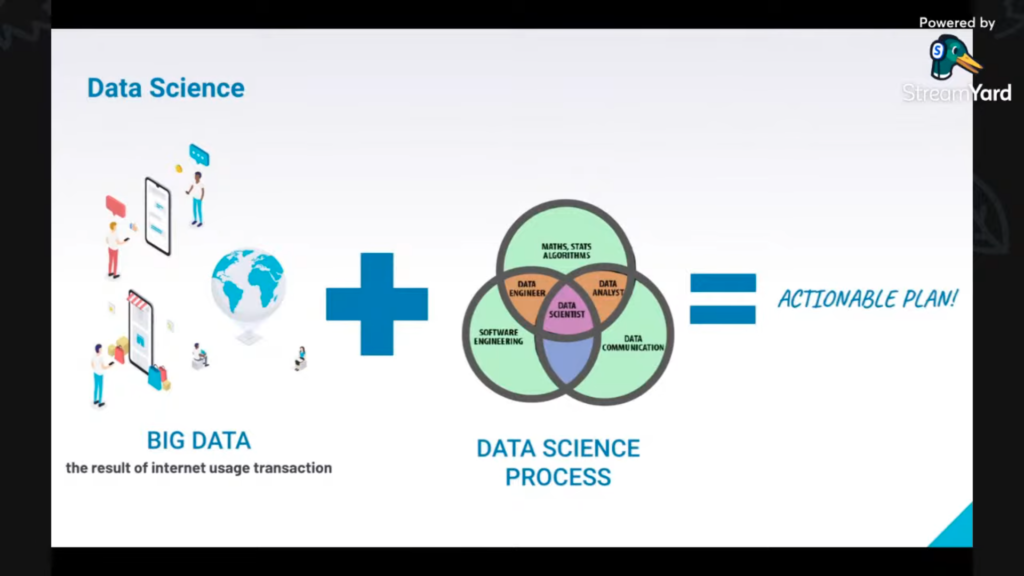
(dok. DQLab)
TANGERANG – Data science has three components: Data Engineer, Data Scientist, and Data Analyst. All three provide the same insight into their respective jobs. Through a Mini Boot camp and a Closing Live Session, DQLab invited Tantut Wahyu, data analyst of RupaRupa.com, to share this knowledge on the impacts of learning data science. This event was held virtually on Thursday (17/02/22).
Data science is a science that combines several data processing and things that are processed. The things processed are data and big data. Big data is one source that is very large and consists of 5V, namely volume, velocity, variety, veracity, and value. Big data results from using the internet, which can be obtained internally and externally.
“If you find data with these 5V characteristics, it means you have found big data,” Tantut said.
Tantut explained three areas of data processing, namely, Data Scientist, Data Analyst, and Data Engineer. According to him, the three scopes are interrelated and must help each other in their work. First, the Data Scientist and the Data Analyst must communicate data because both are tasked to convey the company’s insights.
“Data scientists have to communicate data to convey the facts when they found the right models,” Tantut added.
Secondly, Data Engineers and Data Scientists have to understand software engineering because they are connected. Data Engineers is in charge of collecting data until the data is ready for use and producing a data warehouse, data mark, or data lake. Meanwhile, the Data Scientist is in charge of implementing the model tested into the system.
“Data engineers must know software engineering because they have to know where the data is stored and in what direction,” he said.
Third, a Data Scientist, Data Analyst, and Data Engineer must be able to do mathematics, statistics, and algorithms. According to Tantut, the three sciences can make work easier.
Tantut also explained the lifecycle of data science from start to finish. The data processing process begins with collecting done by the Data Engineer, cleaning and EDA done by the Data Analyst, and the model and deployment done by the Data Scientist. All data practitioners must work together to produce valuable insights for the company in the process.
Also read Pengenalan Data Science dalam Transformasi Digital
“The data science lifecycle is quite important. During job interviews in the future, there will be several questions leading to this lifecycle,” Tantut said.
A data practitioner must have several skills to process data in the industry regarding the data science lifecycle. Tantut said that there are several skills that data talent candidates must master, especially Data Analysts. The hard skills that must be possessed are R, Python, and SQL programming languages, statistics or mathematics, data visualization and communication, and data knowledge.
“SQL is like gold. SQL has to be mastered by a data practitioner,” Tantut added.
Being a data practitioner is not all about hard skills. Soft skills like business knowledge, critical thinking, communication, presentation skills, and teamwork are needed to complement the hard skills.
Before closing the live session, Tantut gave tips on the learning path: studying online courses such as DQLab and YouTube, participating in competitions, and sharing by participating in communication or publication of project data through social media.
“There are a lot of data practitioners needed, but not many data practitioners are in line with the company’s wishes. People who work with data who understand the business are needed. In DQLab’s career track, you can process data of real industries, helping you to understand what to do when you work later,” Tantut concluded.
Feel the exciting experience of learning data science like Tantut and prepare yourself to become a data practitioner by accessing the career track at DQLab.id.
by Lathifa Lisa | DQLab
Kuliah di Jakarta untuk jurusan program studi Informatika| Sistem Informasi | Teknik Komputer | Teknik Elektro | Teknik Fisika | Akuntansi | Manajemen| Komunikasi Strategis | Jurnalistik | Desain Komunikasi Visual | Film dan Animasi | Arsitektur | D3 Perhotelan | International Program, di Universitas Multimedia Nusantara. www.umn.ac.id

